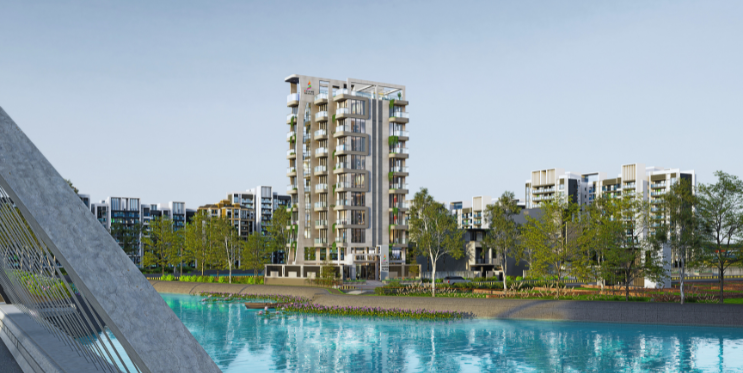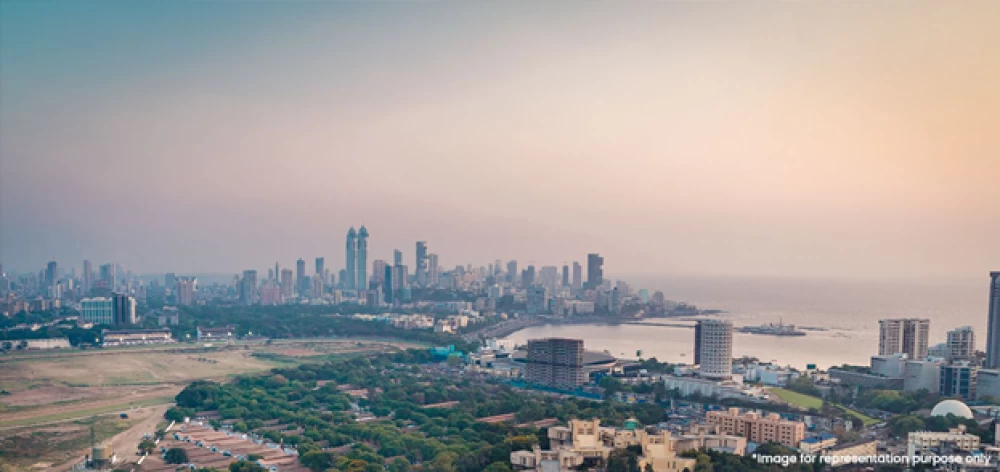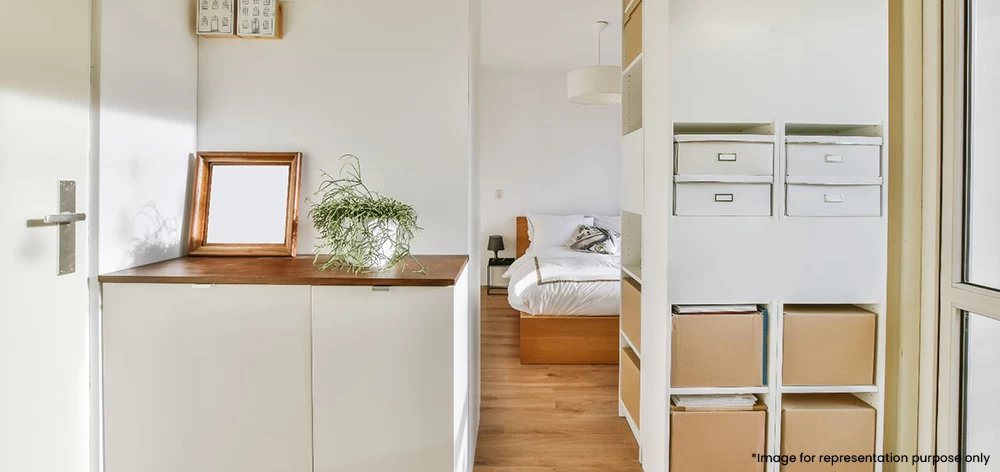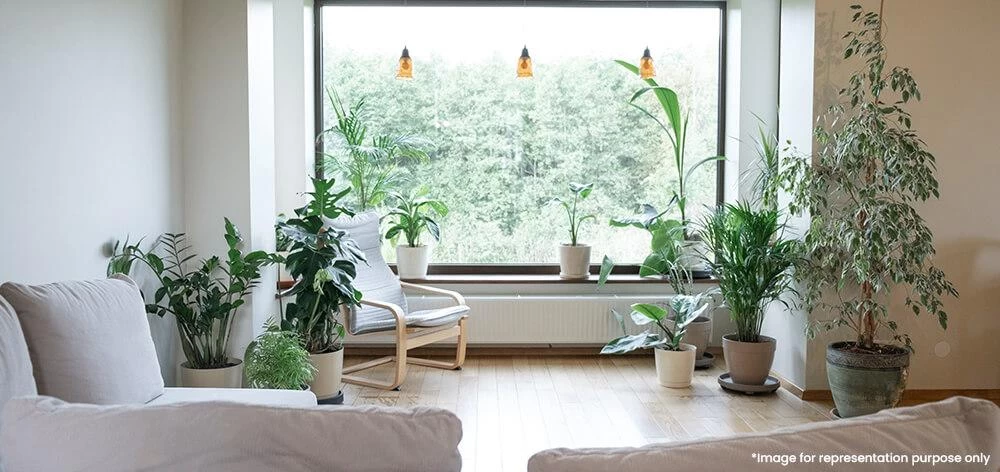Extreme Liora Palace
Bashundhara R/A-তে সেরা Green Building অ্যাপার্টমেন্ট কেন Extreme Liora Palace আপনার জন্য সঠিক পছন্দ?
ঢাকায় একটি নিরাপদ, প্রিমিয়াম ও ভবিষ্যৎ-নির্ভর অ্যাপার্টমেন্ট খোঁজা আজকের দিনে সহজ নয়। বিশেষ করে যদি আপনি চান
✔️ জমির মালিকানা নিজের নামে
✔️ South Facing ও Lake Corner লোকেশন
✔️ Green Building সুবিধা
✔️ স্বচ্ছ কিস্তি ও নির্ভরযোগ্য ডেভেলপার
তাহলে Extreme Liora Palace, Bashundhara Residential Area হতে পারে আপনার জীবনের অন্যতম সেরা সিদ্ধান্ত।
Extreme Liora Palace – একটি প্রিমিয়াম আবাসনের পূর্ণ ধারণা
Extreme Liora Palace একটি বিলাসবহুল Green Building প্রজেক্ট, যা নির্মাণ করছে বাংলাদেশের নির্ভরযোগ্য রিয়েল এস্টেট কোম্পানি Extreme Builders Ltd.
প্রজেক্টটি অবস্থিত ঢাকার অন্যতম পরিকল্পিত ও অভিজাত এলাকা Bashundhara R/A, Block-N, Road-55-এ।
📍 লোকেশনের বিশেষত্ব
- RAJUK অনুমোদিত এলাকা
- দক্ষিণমুখী (South Facing)
- লেক কর্নার প্লট
- প্রশস্ত রাস্তা ও শান্ত পরিবেশ
👉 এই লোকেশন ভবিষ্যৎ রিসেল ভ্যালু ও ভাড়ার জন্য অত্যন্ত লাভজনক।
Project Overview: কেন এই প্রজেক্ট আলাদা?
Extreme Liora Palace ডিজাইন করা হয়েছে কম ইউনিট, বেশি প্রাইভেসি ও প্রিমিয়াম লাইফস্টাইল নিশ্চিত করার জন্য।
- জমি: ৪.৫ কাঠা (South Facing, Lake Corner)
- বিল্ডিং: G + M + 8 (Green Building)
- ইউনিট: প্রতি ফ্লোরে ১টি (মোট ৮টি ইউনিট)
- ফ্ল্যাট সাইজ: ২০৬০ sqft
- ৪ Bed | ৪ Bath | ৪ Balcony
- Lift & Generator সুবিধা
- ৮টি Car Parking
👉 প্রতি ফ্লোরে একটি ইউনিট মানে- শব্দ কম, নিরাপত্তা বেশি এবং ব্যক্তিগত জীবন সম্পূর্ণ প্রাইভেট।
Premium Amenities: শুধু ফ্ল্যাট নয়, একটি সম্পূর্ণ লাইফস্টাইল
Extreme Liora Palace আপনাকে দিচ্ছে এমন সব সুবিধা, যা সাধারণ অ্যাপার্টমেন্টে পাওয়া যায় না।
✔️ Swimming Pool
✔️ Prayer Room
✔️ সুন্দর Landscape & Fountain
✔️ Community Space
✔️ Children’s Play Area
✔️ BBQ Corner
✔️ 24/7 CCTV Security
👉 পরিবার, শিশু ও অতিথি-সবার জন্য একটি আরামদায়ক ও সুরক্ষিত পরিবেশ।
Green Building Concept – ভবিষ্যৎ প্রজন্মের জন্য স্মার্ট বিনিয়োগ
Extreme Liora Palace একটি Green Building, যার মানে-
- প্রাকৃতিক আলো ও বাতাসের সর্বোচ্চ ব্যবহার
- বিদ্যুৎ ও পানি খরচ কম
- পরিবেশবান্ধব ডিজাইন
- দীর্ঘমেয়াদে মেইনটেন্যান্স খরচ কম
আজ যারা Green Building বেছে নিচ্ছেন, তারা শুধু বাসা নয়- ভবিষ্যৎ সুরক্ষিত করছেন।
Cost & Payment Plan: স্বচ্ছ, বাস্তবসম্মত এবং ক্রেতাবান্ধব
আমরা বিশ্বাস করি স্বচ্ছতা = বিশ্বাস।
- জমির শেয়ার: ৬২ লক্ষ টাকা
(রেজিস্ট্রেশন + মিউটেশনসহ) - নির্মাণ খরচ: আনুমানিক ৪৮ লক্ষ টাকা
(২৪ মাসের সহজ কিস্তিতে) - মোট খরচ: প্রায় ১ কোটি ১০ লক্ষ টাকা
- প্রতি sqft মূল্য: প্রায় ৫,৩৬০ টাকা
📌 ২ বছরের মধ্যে নির্মাণ সম্পন্ন ও ফ্ল্যাট হস্তান্তর নিশ্চিত।
👉 Bashundhara R/A-তে এই দামে South Facing, Lake Corner, Green Building-এটি একটি অত্যন্ত Competitive Offer।
সবচেয়ে গুরুত্বপূর্ণ বিষয়: জমির মালিকানা আপনার নামে
অনেক প্রজেক্টে সবচেয়ে বড় প্রশ্ন থাকে- জমির মালিকানা কি নিশ্চিত?
Extreme Liora Palace-এ:
✅ জমির মালিকানা সরাসরি আপনার নামে
✅ রেজিস্ট্রেশন ও মিউটেশন সম্পূর্ণ স্বচ্ছ
✅ কোনো হিডেন চার্জ নেই
👉 এটি শুধু একটি ফ্ল্যাট নয়, এটি আপনার স্থায়ী সম্পদ (Asset)।
কেন Extreme Builders Ltd. অন্যদের থেকে এগিয়ে?
Extreme Builders Ltd. পরিচালিত হচ্ছে-
👷 বাংলাদেশের স্বনামধন্য ও অভিজ্ঞ Civil Engineer (কোম্পানির মালিকপক্ষ) দ্বারা
✔️ কোয়ালিটি কনস্ট্রাকশন
✔️ সময়মতো হস্তান্তর
✔️ স্বচ্ছ ডিলিং
✔️ দীর্ঘমেয়াদি বিশ্বাস
আমরা প্রজেক্ট বিক্রি করে হারিয়ে যাই না- আমরা সম্পর্ক তৈরি করি।
Bashundhara R/A-তে বসবাসের সুবিধা
- নামকরা স্কুল, কলেজ ও বিশ্ববিদ্যালয়ের নিকটবর্তী
- আন্তর্জাতিক মানের হাসপাতাল
- শপিং মল ও সুপারশপ
- প্রশস্ত রাস্তা ও নিরাপদ পরিবেশ
👉 পরিবার নিয়ে শান্ত ও আধুনিক জীবনযাপনের জন্য Bashundhara R/A অন্যতম সেরা এলাকা।
যোগাযোগ করুন – আজই আপনার ফ্ল্যাট বুক করুন
Extreme Builders Ltd.
🏠 House-14/A (Level-04), Road-02, Banani, Dhaka-1213
🌐 www.extremebuildersltd.com
📞 01711-639553 | 📞 01712-559953 | 📞 01911-227368






